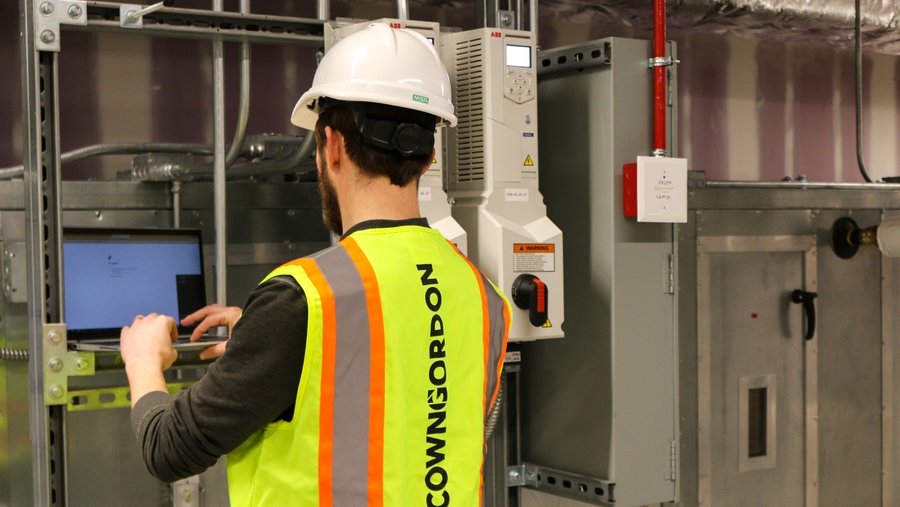
Building commissioning involves reviewing, testing and verifying the functional performance of both new and existing buildings to achieve green certification.
Commissioning costs represent only a minor portion of total project expenses and can save significant maintenance costs down the line, while also helping prevent problems from developing which would require costly remedial action in future.
Commissioning of buildings serves a critical function: verifying that systems operate as designed and that occupants experience optimal indoor conditions. This improves employee comfort and productivity, leading to increased profit margins in business settings while simultaneously decreasing energy consumption and operational costs.
Lawrence Berkeley National Laboratory conducted a comprehensive analysis of 643 buildings, and found that commissioning can produce energy savings and emissions reductions of 16% across whole buildings, with payback periods typically lasting 1.1-4.2 years.
As well as improving energy efficiency, the commissioning process also uncovers problems that would otherwise become costly maintenance or safety issues. This leads to reduced project schedules and call backs during construction as well as more reliable operations and maintenance practices that reduce unexpected breakdowns, repair costs, equipment life extension and unexpected breakdowns for more predictable costs savings in data centers.
Occupant comfort is a critical aspect of building commissioning that has been shown to increase satisfaction, productivity and job performance among tenants and employees. Achieve optimal occupant comfort requires a well-planned system incorporating energy efficiency, occupant control, air quality standards and indoor environmental standards into its design.
Commissioning services are typically overseen by professionals with expertise in commissioning - known as CxP (Commissioning Provider). Depending on the project, this could mean hiring them as part of the design/design team, engineering/construction firm, project management firm or even as an independent third party - though in ideal situations the Owner contracts them directly as their representative or consultant.
Studies focusing on occupant comfort in buildings have been widely published. Most research papers employ either single factor approaches where each comfort aspect is assessed individually, or multi factor ranking-based approaches that assess how each factor contributes to overall comfort levels.
Commissioning involves testing every aspect of a facility and its equipment before occupancy begins, so systems are functioning optimally before costly repairs or breakdowns arise. Furthermore, commissioning allows teams to develop detailed operation and maintenance manuals as well as provide training for building operations staff.
Building commissioning can assist a project team in preventing cost increases and schedule delays by uncovering issues during construction that would otherwise go undetected, until they manifest in terms of impacts to occupants or operations. Furthermore, commissioning can result in quantifiable energy savings as well as reductions in greenhouse gas emissions through system optimization, continual monitoring and fine-tuning.
Building commissioning ensures the timely delivery of a high-performing building or system that fulfills design intent while meeting project owner requirements. The process can be applied to both new and existing facilities/systems; retro commissioning helps improve energy efficiency. Building commissioning ultimately produces an energy efficient facility with lower energy and operating costs and improved documentation and operations procedures for installed systems.
Commissioning of buildings resembles sailing ships in that it involves verifying that their components are installed and functional. A commissioning agent must identify problems, resolve them and deliver a fully functional building for occupancy. A commissioning agent could be part of an engineering firm, construction/project management team or contracted independently directly by an Owner as their agent for commissioning.
CxPs provide invaluable assistance, helping to identify issues early on and minimize delays and costs by eliminating costly maintenance or safety concerns. Furthermore, they have the experience needed to resolve conflicts among design and construction professionals.
Commissioning processes that are properly executed provide new and existing buildings alike with numerous benefits, including improved energy efficiency, indoor air quality and comfort for their occupants, lower operation and maintenance costs, as well as an optimal return on investment for their owner.
In conclusion, building commissioning serves as a crucial component in ensuring the efficiency, performance, and longevity of our built environment. By implementing commissioning processes, we can significantly reduce energy consumption, enhance occupant comfort, and minimize carbon footprints. However, sustainable living extends beyond the initial construction phase. For those seeking an even more environmentally friendly approach to housing, earth homes present a compelling solution. Earth homes utilize natural materials and design principles to create sustainable and energy-efficient living spaces. To learn more about earth homes and how they promote a sustainable lifestyle, visit Archidrenaline.